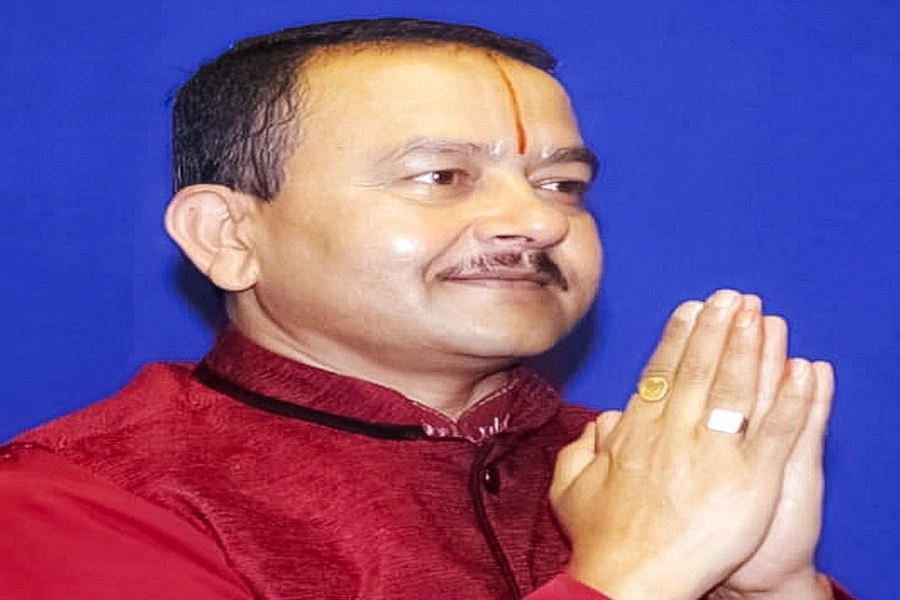Pranaya Rana's City of Dreams has already hit the bookstores in India. Now he is busy trying to figure out ways to get the stock of his books meant for Nepali readers out of the borders where it has been stuck due to the blockade. Despite the delay though, stories of Rana's dreams of this city have garnered quite the buzz and the book is being highly anticipated.
Weaver bird tales

So Priyanka Gurung caught up with the 28 year old to chat about the country's literary scene, his current state of mind, and his personal book collection.
No, you obviously have to read Nepali books. Besides I believe these are exciting times in the Nepali literature scene. There are many Nepali writers who are bringing forth some innovative works. From Kumar Nagarkoti to Amar Neupane and more, there are signs of post modernist influences. Theirs is a new approach to language and literature which is very interesting to witness. It seems like they are keen to interrogate the idea of what it means to be a writer and what it means to create a narrative. Even though genre wise social realism is still popular, there are certain layers in the stories that you really have to engage in to understand what these writers are bringing to Nepali literature. Sometimes it works, sometimes it doesn't, but the fact is they are trying. I'd even say they are exploring literature to the extent that writers in India or South America are doing and this is very positive indeed.
And where do you think Nepali writers writing in English stand?
I feel a lot of Nepali writers writing in English aren't quite certain where we fit in the whole canon of literature, and not just Nepali literature but world literature. It is a struggle to locate yourself in that spectrum. We tend to think that we are not part of whatever is going across the world or what is going on in Nepali literature as well. Perhaps it is subconscious but it shows in their work. In a way, Nepali writers writing in English is infantile. They have yet to explore ideas and approaches like I believe some writers who write in Nepali are already doing.
So what made you think this was a good time to release your book?
I feel like I have reached a point where I can get this work out and be relatively comfortable with it. I'm ok with people judging me on these stories. Anyway, this is my first book. I'm waiting for reviews and I look forward to working with the feedbacks.
Do you feel vulnerable putting your work out there?
Very much. My writing is quite personal and I'm sure other writers feel this way too. I take inspirations from everywhere. The stories were born from who I am, and who I have around me, my friends and acquaintances. The people who know me, they will definitely recognize maybe themselves or me in the book. So it's a personal thing. It's almost like putting yourself out there, naked and asking people to go ahead and judge you.
Writing stories is one thing, publishing them is a whole another ball game. How has your experience been so far?
It's been tough actually. I wanted to publish my book in Nepal but I was told there isn't a market for books written in English here. This was back in 2012. They told me my best bet would be to try India because it has a larger population that reads in English. Apparently this is what every Nepali writer does as well. So I got contacts from a journalist friend there and randomly sent my manuscript to publishers. Surprisingly I got a few positive responses back then in late 2012- 2013. I was just testing the waters and not expecting this at all. But since they were willing, I thought why not? So this has been going on for around two years now. Publishing is a long and arduous process of you sending your manuscript, the editor sending his feedback and so on and so forth. There is a lot of back and forth but this experience has been a real opener as well. I have learnt a lot and the next book is definitely going to be easier.
We have many people calling themselves writers these days partly because of blogs and social media. As a writer, do you find that annoying?
Not really. Who am I to say you are not a writer or a poet but a lot of times social media does tend to create an echo chamber. If you are sharing your work among your friends or acquaintances, it is very easy to get positive reviews. A lot of people say good things but that might not necessarily be true. I'd be wary of that. A writer needs to get an objective view of where he stands. Find a way to achieve that too.
Lastly, how confident are you about your career choice right now? How feasible is it to be a writer in a country like ours?
Well there is no way you can make a living by only being a writer. But what else am I going to do? This is really the only thing I'm good at. And I'm willing to give it 15-20 years. More people than ever are reading in English these days. The internet penetration is increasing exponentially, thus knowing English has become essential. I believe the readership of Nepali writers writing in English can only grow.





-1200x560-1772467693.webp)






























